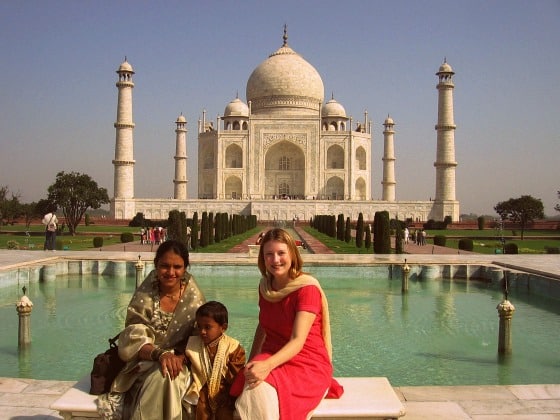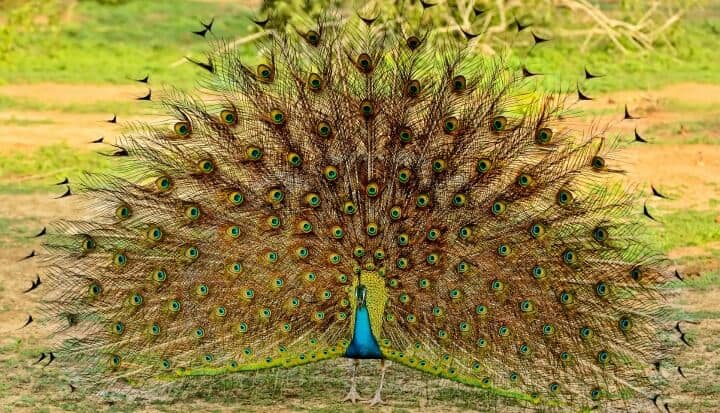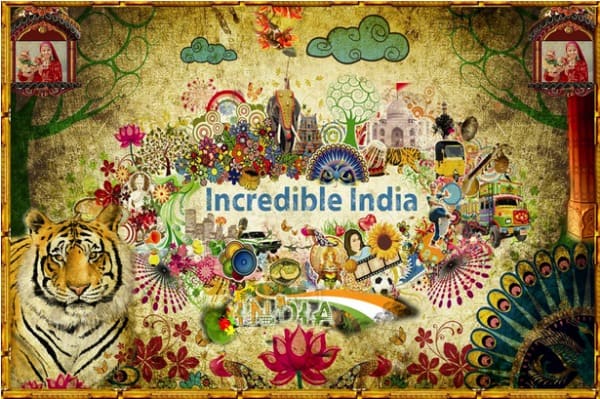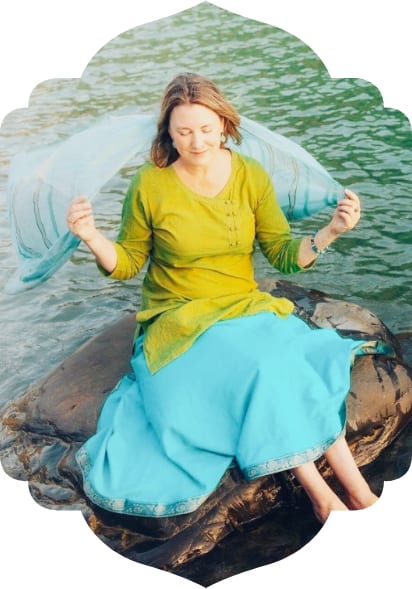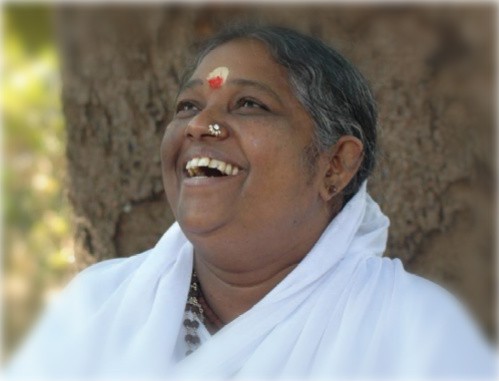
India, sexism and the media
On May 27, the Globe and Mail, Canada’s National Newspaper, ran an article by the paper’s India correspondent Stephanie Nolen entitled, Female face of power reflects change in India. The story is about how Nolen sees it is a paradox that five of India’s leading political power brokers are women. Nolen says, “…it is startling in the context of the intense discrimination against women and girls that permeates every aspect of life across class, communities and geography here.”
I find “sweeping, ethnocentric statements” like this depressing. Nothing against Nolen, who is a top-notch reporter and an excellent writer; and I realize that there’s lots of evidence to support this charge. Here’s my problem. This statement makes India sound like a bleak and dismal place, full of gloomy women chained to their stoves. It dismisses the MANY cheerful, accomplished, successful and outspoken women in India. It overlooks the strengths and advantages of traditional culture, such as strong family bonds. It’s written by a western reporter (from Canada), which makes it sound as if the west is free from sexism. It fails to understand the diversity, complexity and fluidity of India. And it reinforces the worst stereotypes about India.
It’s also not my experience. This is the reason I’m not working in mainstream media (though I have a degree in journalism). I don’t believe in so-called “objectivity” and I don’t want to write “sweeping, ethnocentric statements.” I like to write in a subjective genre — creative non-fiction or personal narrative — because I believe truth is in our subjective experience of life.
I am only a traveler, I have only spent about 14 months in India, but when I am there, I live in an Indian household. The women in that household are strong, expressive and, in my experience, rule the roost. I found the same to be true when I lived in Japan. Women have power, but it is largely private, not public. And I have met many strong, independent women all across India. So, in response to the statement that sexism permeates every aspect of life, I would like to celebrate the women of India.
Women I admire
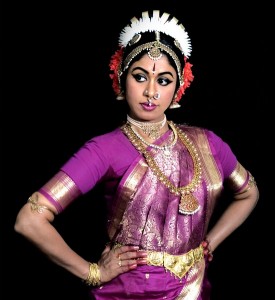
I would like to tell you first about Geeta, who I live with in Delhi. She is small-boned, fair-skinned and beautiful, was married at 17, (in an arranged marriage) and had her first child on her 18th birthday, 45 years ago. She has a relaxed yet firm way of keeping her family together and on track, and of organizing and running the household. She doesn’t interfere unless necessary. But when she issues a command, everyone obeys. Geeta carries the keys to the store room; she is the only person who can access the room with the locked door, behind the silk curtain, that contains all the family treasures. Until about two years ago, Geeta wore a sari every day of her life. Recently, she started exercising, going for walks, wearing pants and even jeans, and going on vacation without her husband. At 63 years of age, Geeta has raised her children, and is now coming into her own, and no one is stopping her. She’s a strong woman, yet very feminine. I adore her.
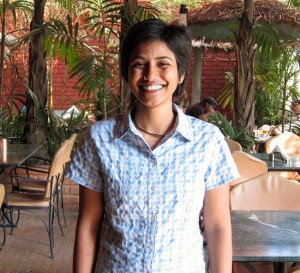
In Bangalore, I met Freya, a young Muslim women who breaks all the stereotypes. She wears western clothes, has short spiky hair and drove her motorcycle across India on an eight-month odyssey. And blogged about it. She works in social media, has a photographer boyfriend and pursues a modern and creative lifestyle. I bonded with Jaya in Bundi, and called her “sister.” Jaya is a late-20-something young women from a very traditional family and very traditional culture who is fiercely determined to live her own life and is not the least interested in getting married. She speaks freely and is a refreshingly unselfconscious person. Her family owns and runs a haveli hotel, and she works hard and takes responsibility for the management.
In Mumbai, I stayed with Jasmine, a writer, who is as strong, as confident and as sure of herself as any man could ever be. She had a successful career as a banker before she quit to become a writer. She has tackled her career as a writer with strategy, ingenuity and absolute determination. She is very inspiring. Shobha Korambil, in Chennai, is a married woman, with a daughter, who devotes a very large amount of her time and energy to her dance career. She is a beautiful woman and, I am sure, an exquisite Kuchipudi dancer. Also in Chennai are the women teachers at the Krishnamacharya Yoga Mandiram, past and present — who are remarkably intelligent and strong.
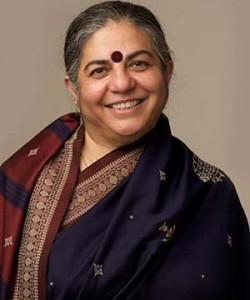
I also want to mention a few women in India I admire, and haven’t met. Dr. Vandana Shiva is a world-renowned environmentalist, eco-feminist and author, educated in Canada (Ph.D in Philosophy) and founder of Navdanya, a research facility, seed bank and centre for environmental activism near Dehradun.
Arundhati Roy is a novelist who won the Booker prize for The God of Small Things. She is also an outspoken activist who often finds herself mired in controversy, but she never backs down. Whether you agree with her often controversial views, you have to admire her courage and conviction. For example, she donated the $30,000 in prize money she received for The God of Small Things to the Narmada Dam protest.
Sri Mata Amritanandamaya Devi, known the world over as Amma, “the hugging saint,” is an inspiring spiritual leader who seems to have super-human control over herself (she can give darshan to thousands of people, by hugging them, for many, many hours on end without a break and without tiring). She has attracted legions of followers, and uses the money they donate to help build hospitals, schools and provide relief for tsunami victims, among other worthwhile projects. (I was hugged by her at her ashram in Kerala in 2006.)
To judge or not to judge
So how do writers and travelers approach social inequity and other issues in countries that are less developed, or less materially rich, than the ones we come from? I try to be very careful when I am in India and when I’m writing about India not to be too ethnocentric, not to practice what I call “cultural imperialism.” I wrote a blog about it called Sub-continental divide: How to write about about India.
I know that India has many social problems, but I also know it has many challenges compared to my country, Canada — such as a population of 1.2 billion. (Canada has only 30 million. But not to suggest that Canada is perfect. I don’t write about it, but my comfortable, middle-class upbringing in Canada includes abuse and neglect. I have experienced firsthand the downside of western culture, the break-up of families, alienation, anxiety, depression.)
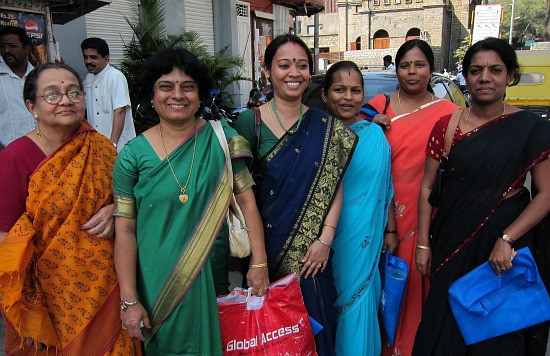
India is also a very, very different culture compared to Canada — it’s a very old culture with deeply embedded traditions (such as the caste system) and a very different philosophical and spiritual foundation — and a difficult place for westerners to understand. I’ve been trying for years and my Indian partner Ajay reminds me daily about the things I don’t get. I think Mark Tully, former BBC bureau chief in Delhi, expressed it best in his book India’s Unending Journey. He said that after 30 years in India, he finally learned to be certain about uncertainty — that is what India taught him.
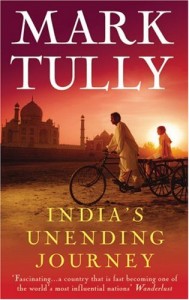
So for now, I will try and avoid “sweeping, ethnocentric” statements and stick to describing my own experience.
If you enjoyed this post, you can….
Get updates and read additional stories on the Breathedreamgo Facebook page.
Buy Song of India, a collection of 10 feature stories about my travels in India.
Subscribe to the free — and inspiring! — e-newsletter, Travel That Changes You.


